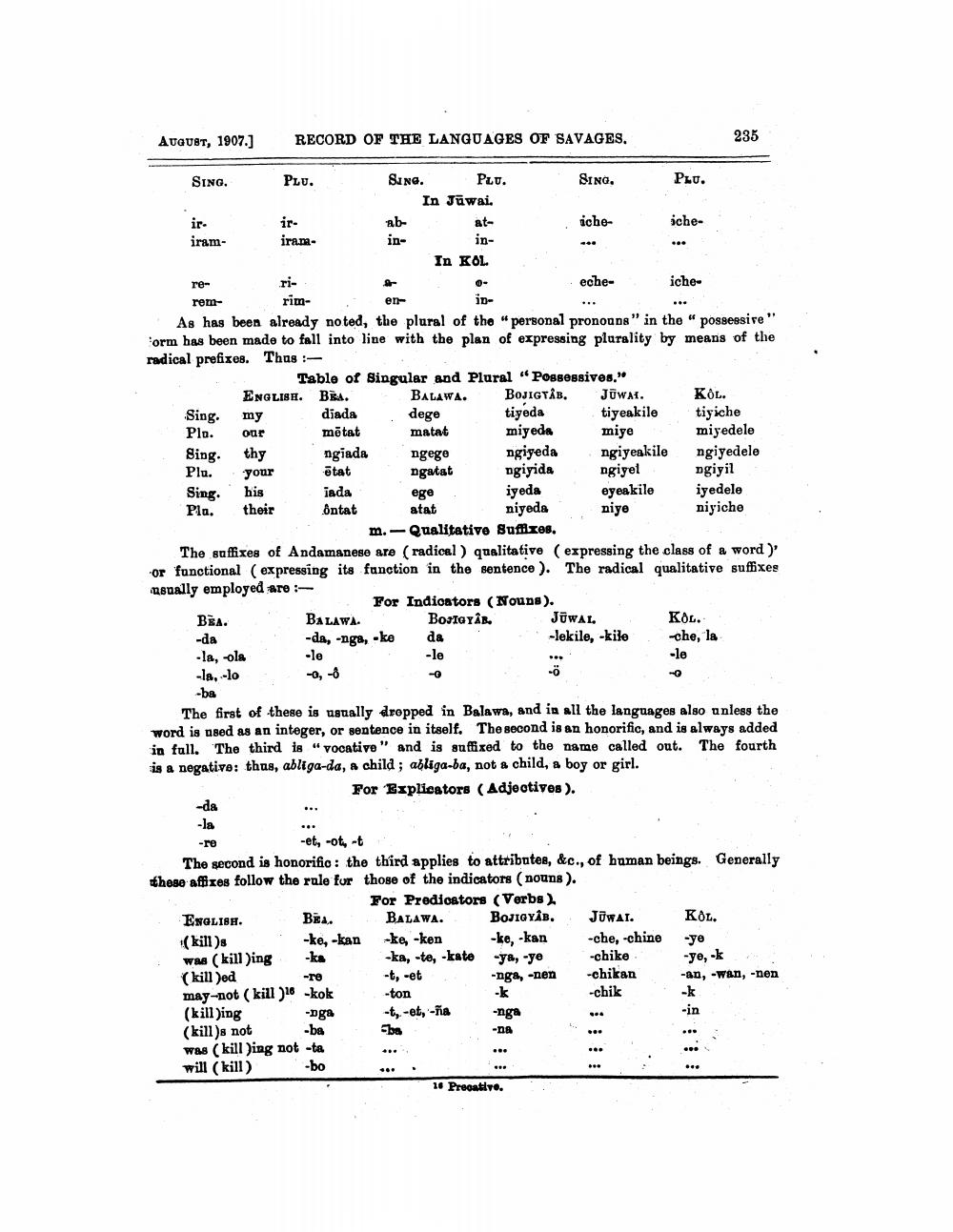________________
AUGUST, 1907.]
SING.
iriram
Sing. my
Pla. our
Sing. thy
Plu.
your
his
their
Sing.
Pla.
RECORD OF THE LANGUAGES OF SAVAGES.
BEA.
-da
-la, -ola
-la, -lo
-ba
PLU.
ENGLISH.
-da -la
ir
iram
ENGLISH.
(kill )s
was (kill)ing
BEA.
diada
mētat
ngiada
ētat
iada
ôntat
re
ri
0
rem
rim
en
in
...
As has been already noted, the plural of the "personal pronouns" in the "possessive" orm has been made to fall into line with the plan of expressing plurality by means of the radical prefixes. Thus :
SING.
ab
in
Sir
Table of Singular and Plural "Possessives." BALAWA.
BEL. -ke, -kan -ka
(kill)ed
-re
may-not (kill 16 -kok (kill)ing
In Juwai.
at
in
-nga -ba
In Kol.
(kill)s not
was (kill)ing not -ta will (kill)
-bo
PLU.
dege
matat
ngege
ngatat
ege
atat
For Indicators (Nouns). BALAWA. BOJIGYÂB. -da, -nga, -ke da -le
-le -0, -8
BOJIGTAB. sipeda
miyeda
ngiyeda
ngiyida
SING.
iche
eche
iyeda
niyeda m.-Qualitative Suffixes.
The suffixes of Andamanese are (radical) qualitative (expressing the class of a word)' or functional (expressing its function in the sentence). The radical qualitative suffixes usually employed are:
-nga
-na
16 Precative.
JUWAI. tiyeakile
miye
ngiyeakile
ngiyel
eyeskile
niye
The first of these is usually dropped in Balawa, and in all the languages also unless the word is used as an integer, or sentence in itself. The second is an honorific, and is always added in full. The third is "vocative" and is suffixed to the name called out. The fourth is a negative: thus, abliga-da, a child; abliga-ba, not a child, a boy or girl.
For Explicators (Adjectives).
JUWAL -lekile, -kile
-re
-et, -ot, -t
The second is honorific: the third applies to attributes, &c., of human beings. Generally these affixes follow the rule for those of the indicators (nouns).
For Predicators (Verbs) BALAWA. BOJIGYɅB. -ke, -ken -ke, -kan -ka, -te, -kate -ya, -ye -t, -et -nga, -nen
-k
-ton -t,-et, -ña ba
PLU.
iche
JUWAI.
-che, -chine -chike -chikan -chik
iche
...
***
235
KOL.
tiyiche miyedele
ngiyedele
ngiyil
iyedele
niyiche
KOL. -che, la -le
KOL.
-ye
-ye, -k -an, -wan, -nen -k -in
...




